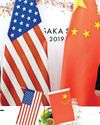Balancing sweeping economic reforms with targeted welfare policies will figure high on Modi’s list of new priorities, even as he tries to consolidate his foreign policy gains

Policies are framed the way the political class interprets the mandate. Narendra Modi rode to power in 2014 on an anti-corruption juggernaut. After a cabinet meeting on May 27, a day after he was sworn in, Modi announced the setting up of a special team to unearth black money. His subsequent decisions—be it demonetisation, the law prohibiting benami transactions or even the goods and services tax—were all aimed at stemming the rot.
The 2019 mandate, which Modi termed a pro-incumbency wave, was even bigger. The BJP got more than 50 per cent votes in 224 of the 303 seats it won. The BJP recorded its highest vote-share jumps, of more than 6 per cent, in constituencies that were largely rural. The saffron party got over 22 crore votes, around five crore more than in 2014. The mandate surprised political observers, as it gave no indication of rural or farmer distress. Even dalits and scheduled tribes voted overwhelmingly for the BJP, as evident from the party’s huge margins in many constituencies.
Nationalism was a key theme that influenced voters. Modi pushed his muscular doctrine on Kashmir, national security and bilateral relations, particularly with Pakistan and China, which won him overwhelming support from first-time voters and women.
Hindutva was another factor that worked in his favour. The cultural agenda of building a Ram temple in Ayodhya will be a priority for the new government, along with the removal of Article 370 (which gives autonomous status to Jammu and Kashmir) and Article 35A (which allows the assembly to define permanent residents of the state). Infrastructure development, poverty alleviation and the formulation of an education policy will also figure high on the list.
Denne historien er fra June 09, 2019-utgaven av THE WEEK.
Start din 7-dagers gratis prøveperiode på Magzter GOLD for å få tilgang til tusenvis av utvalgte premiumhistorier og 9000+ magasiner og aviser.
Allerede abonnent ? Logg på
Denne historien er fra June 09, 2019-utgaven av THE WEEK.
Start din 7-dagers gratis prøveperiode på Magzter GOLD for å få tilgang til tusenvis av utvalgte premiumhistorier og 9000+ magasiner og aviser.
Allerede abonnent? Logg på

The female act
The 19th edition of the Qadir Ali Baig Theatre Festival was of the women and by the women

A SHOT OF ARCHER
An excerpt from the prologue of An Eye for an Eye

MASTER OF MAKE-BELIEVE
50 years. after his first book, Jeffrey*Archer refuses to put down his'felt-tip Pilot pen

Smart and sassy Passi
Pop culture works according to its own unpredictable, crazy logic. An unlikely, overnight celebrity has become the talk of India. Everyone, especially on social media, is discussing, dissing, hissing and mimicking just one person—Shalini Passi.

Energy transition and AI are reshaping shipping
PORTS AND ALLIED infrastructure development are at the heart of India's ambitions to become a maritime heavyweight.

MADE FOR EACH OTHER
Trump’s preferred transactional approach to foreign policy meshes well with Modi’s bent towards strategic autonomy

DOOM AND GLOOM
Democrats’ message came across as vague, preachy and hopelessly removed from reality. And voters believed Trump’s depiction of illegal immigrants as a source of their economic woes

WOES TO WOWS
The fundamental reason behind Trump’s success was his ability to convert average Americans’ feelings of grievance into votes for him

POWER HOUSE
Trump International Hotel was the only place outside the White House where Trump ever dined during his four years as president

DON 2.0
Trump returns to presidency stronger than before, but just as unpredictable